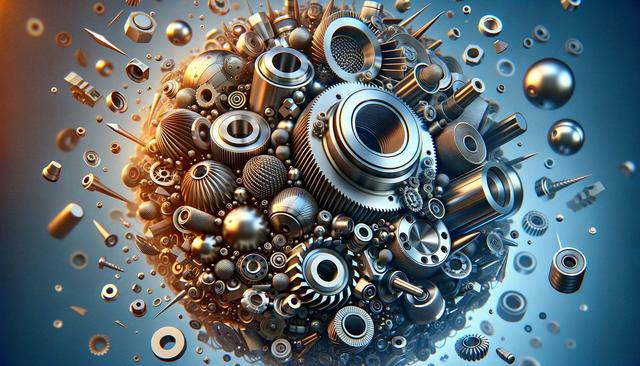European Leadership in Tungsten Carbide Insert Production
Europe has long been a hub for high-precision engineering, and the production of tungsten carbide inserts is no exception. Manufacturers in this region are recognized for their commitment to quality, research, and continuous improvement. These companies operate in countries like Germany, Italy, and Sweden, where engineering excellence is deeply rooted in industrial tradition. The European market emphasizes not only performance but also sustainability and compliance with stringent environmental standards.
Many manufacturers invest heavily in advanced metallurgical processes and cutting-edge machinery to produce tungsten carbide inserts with uniform grain structure and exceptional mechanical properties. This ensures consistent performance in demanding applications such as metalworking, mining, and aerospace manufacturing. By working closely with end users, European producers can tailor their inserts to meet specific operational requirements, enhancing productivity and tool life.
Innovation and Technology in Manufacturing Processes
Technological innovation plays a key role in the European tungsten carbide insert industry. Manufacturers leverage automation, robotics, and digital monitoring systems to maintain high levels of quality and precision. These technologies allow for tight tolerances and complex geometries that meet the evolving needs of modern machining operations.
Key innovations include:
- Powder metallurgy techniques for more consistent material properties
- Advanced coating technologies to reduce friction and increase resistance to heat and wear
- Automated quality control systems using laser scanning and digital imaging
These advancements not only improve product performance but also contribute to shorter production cycles and lower environmental impact. As a result, European manufacturers remain competitive in a global market while maintaining high standards of craftsmanship.
Applications Across Multiple Industries
Tungsten carbide inserts produced in Europe are utilized in a wide range of industries, showcasing their versatility and durability. These inserts are essential in applications where precision and wear resistance are critical. Key sectors include:
- Automotive manufacturing: for engine component machining and high-speed cutting operations
- Aerospace: for drilling and milling tough alloys used in aircraft construction
- Oil and gas: for heavy-duty drilling and excavation tools
- Metalworking: for general-purpose and high-precision cutting tasks
European manufacturers often collaborate with clients to develop custom solutions that optimize insert performance for specific materials and machining conditions. This customer-centric approach enhances operational efficiency and reduces tool replacement frequency, resulting in long-term cost savings.
Commitment to Quality and Certification
Quality assurance is a cornerstone of tungsten carbide insert manufacturing in Europe. Manufacturers operate under strict quality management systems, often certified under internationally recognized standards such as ISO 9001. These certifications affirm a company’s dedication to maintaining consistent product quality, safety, and traceability.
In addition to formal certifications, many European producers conduct rigorous in-house testing, including:
- Hardness and toughness evaluations
- Microstructural analysis
- Tool performance simulations under real-world conditions
This comprehensive quality control ensures that each tungsten carbide insert performs reliably in high-stress environments. By maintaining such high standards, European manufacturers earn the trust of industries that require dependable tools for their critical operations.
Sustainability and Environmental Responsibility
Environmental sustainability is becoming increasingly important in the manufacturing sector, and European tungsten carbide insert producers are actively addressing this challenge. Many companies implement eco-conscious practices such as recycling scrap carbide, reducing energy consumption, and minimizing waste during production.
Environmental efforts commonly include:
- Use of renewable energy sources in manufacturing facilities
- Efficient water and resource management systems
- Safe disposal and treatment of chemical by-products
European regulations also encourage transparency and responsibility, pushing manufacturers to adopt cleaner technologies and improve their overall environmental footprint. This focus on sustainability not only benefits the planet but also aligns with customer expectations for responsible sourcing and production practices.
Conclusion
The tungsten carbide insert industry in Europe is characterized by technological innovation, high-quality standards, and a deep commitment to environmental responsibility. Manufacturers in the region play a pivotal role in enabling precision engineering across numerous demanding sectors. By combining advanced manufacturing techniques with rigorous quality control and sustainable practices, these companies continue to drive excellence in industrial tooling. For businesses seeking reliable and high-performing inserts, European manufacturers offer a compelling mix of expertise, customization capabilities, and long-term value.






